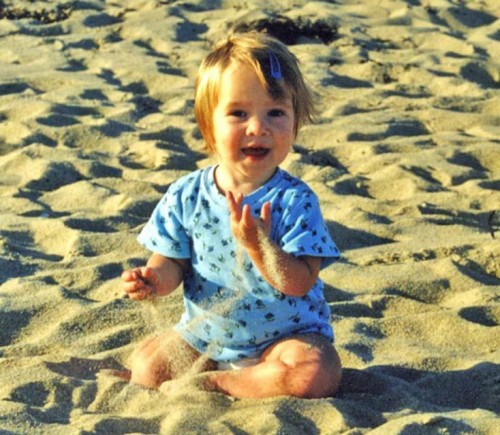
Vitter to GAO: Audit the U.S. Corps of Engineers
December 15, 2011Bayou traditions offer unique opportunities
December 19, 2011The setting and cause of 18-month-old Josie King’s death transformed a tragic story into a decade-long-and-counting international campaign to eradicate death by medical error.
Ten years after Josie’s well-progressing treatment of first- and second-degree burns at healthcare-giant Johns Hopkins Hospital was derailed by dehydration and ended with the toddler dying from cardiac arrest, the child’s mother continues to advocate for practical safety reforms in the healthcare sector.
“I don’t need to keep talking about this anymore,” Sorrel King said in an address to Thibodaux Regional Medical Center staff members at the Cypress Columns last week. “All we need to do now is go back to work and fix the problems.”
King has become a fixture at health-care conferences, a pseudo-celebrity with a relatable personality and understandable mission who gives a voice to the Institute of Medicine’s statistic that says 98,000 people die each year from medical errors.
One program she has championed in recent years is an alteration to a current tool that health-care professionals have at their fingertips, the option to bring in a “fresh set of eyes” to re-examine a patient and develop a treatment strategy.
King said she wants hospitals to give families this tool, it’s called Condition Help, and she has had limited success as large hospitals slowly embrace the change and its challenges, such as the potential for radical usage by families. “You educate the patient and you educate the family,” King counters. “You tell them exactly when to call and exactly when not to call.”
The University of Pittsburgh Medical Center at Shadyside was the first to implement family-activated Rapid Response Teams. Children’s Hospital in North Carolina followed, and UPMC later announced all 12 hospitals under its umbrella would deploy the system.
There’s much more to what the Josie King Foundation is offering, Sorrel King said.
A mass email to nurses solicited ways to cope with the stress of a health-care environment was the first step in producing a nurses’ journal; a patient booklet that includes tips and space to jot down questions and random notes has been printed about 160,000 times and handed out at hospitals; the Maryland Disclosure Program was started to help nurses and doctors tell families about medical errors with sensitivity.
Much of her work is raising awareness and operating the foundation. Staff members at Thibodaux Regional were asked to read her book, “Josie’s Story,” published in 2009, and were invited to see the Baltimore resident speak on Thursday.
TRMC CEO Greg Stock called King a “unique and powerful voice,” and said hospital officials would look at adopting more of King’s programs.
“Her point of view is one we need to hear more about in health care to help us take serious these things and the improvements we need to make,” Stock said. “To bring her here for us is to, I call it, stroke our culture, to gain greater awareness and a heightened sense of the importance of patient safety.”
Light-hearted anecdotes sprinkled throughout the speech offered the nurses and doctors in attendance the perspective of a parent’s first time in a hospital.
The seemingly trivial innocence in requesting a certain floor for treatment during an elevator conversation with a nurse, for example, elicited a few laughs as it affirmed the point that some patients’ families are out of their element in hospitals.
On a serious note, however, King touched on a disconnect between health-care staff and patients, professionals and customers, regarding the debate over proper treatment.
After Josie was treated for dehydration and when she appeared to be getting better, one of the doctors put a stop to administering the toddler narcotics, King said. Twelve hours later a nurse appeared with a painkiller, which was administered to Josie on changed orders, the mother recollected.
The child would later go into cardiac arrest.
“Something I (will live) with every day for the rest of my life, I stood there and I thought to myself, ‘Do I run up to this nurse and do I knock the methadone out of her hand and run out into the hallway and scream for help?’ Or do I say to myself, ‘I’m at Johns Hopkins. This is the best hospital in the country. These doctors and these nurses are the smartest in the country?’” King said.
18-month-old Josie King died in 2001 as the result of medical errors at the nation’s top ranked hospital, Johns Hopkins Medical Center in Baltimore. Since her death, the King family has worked with Johns Hopkins and other hospitals to make care safer. 2006 CROSSKEYS MEDIA









